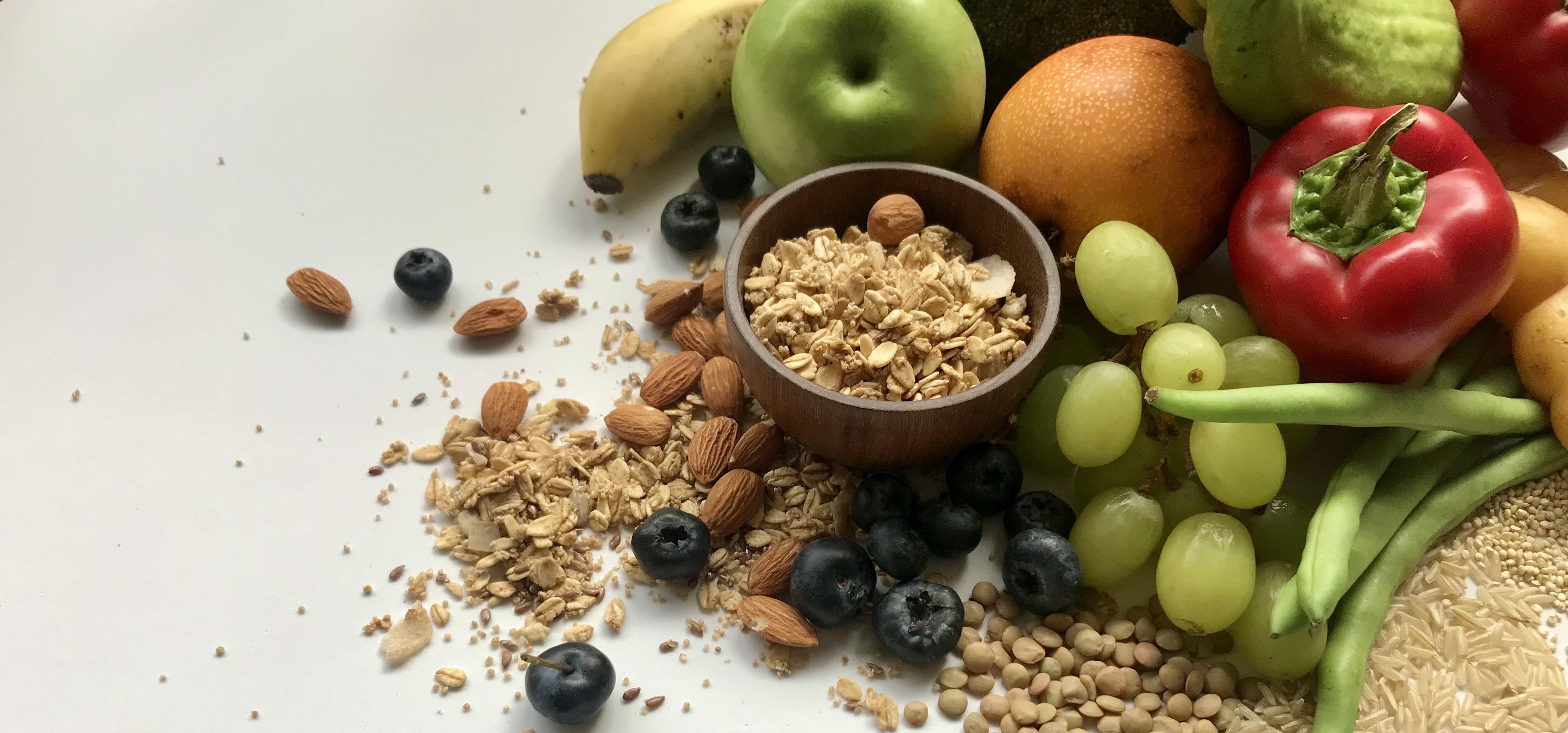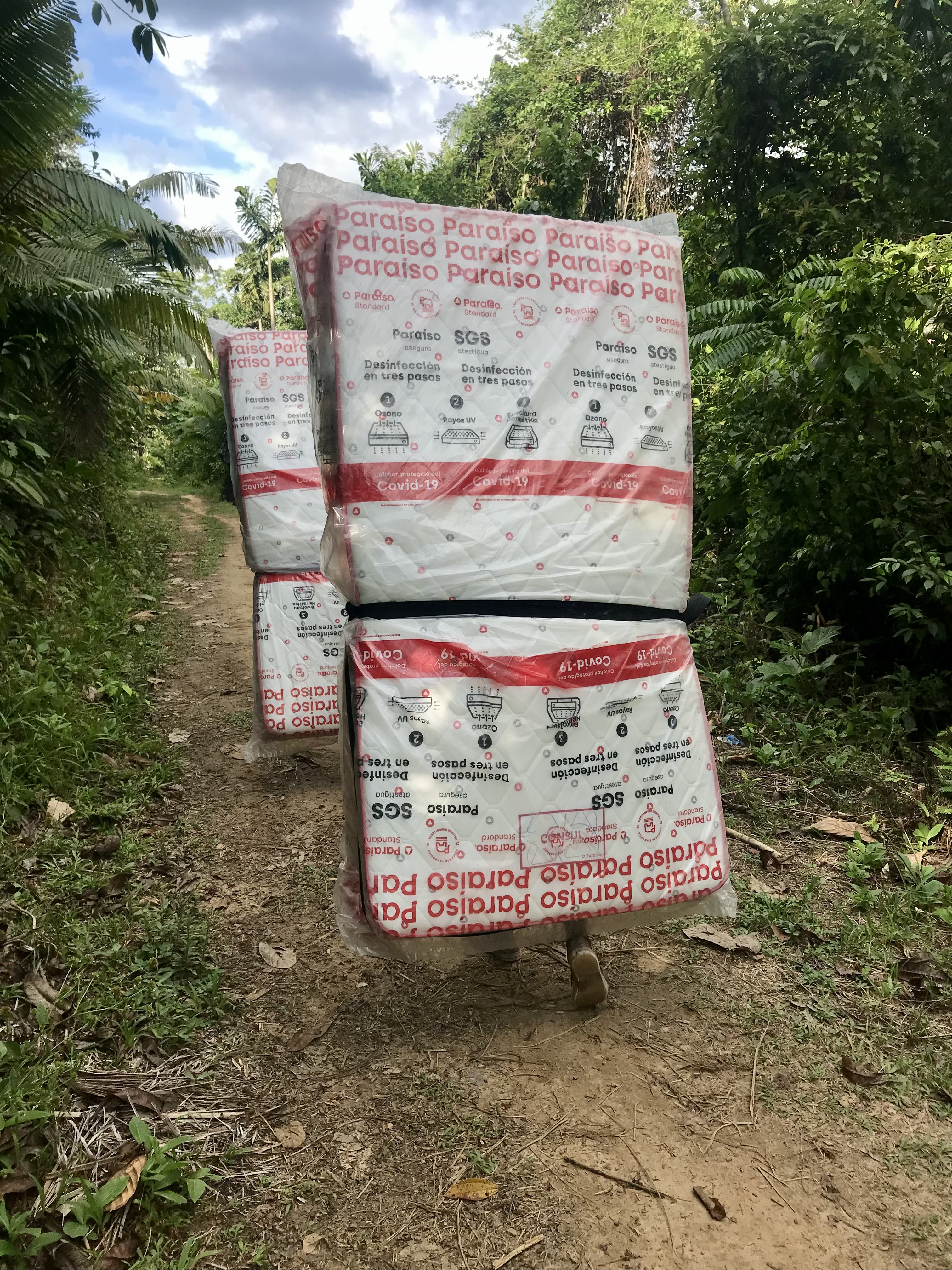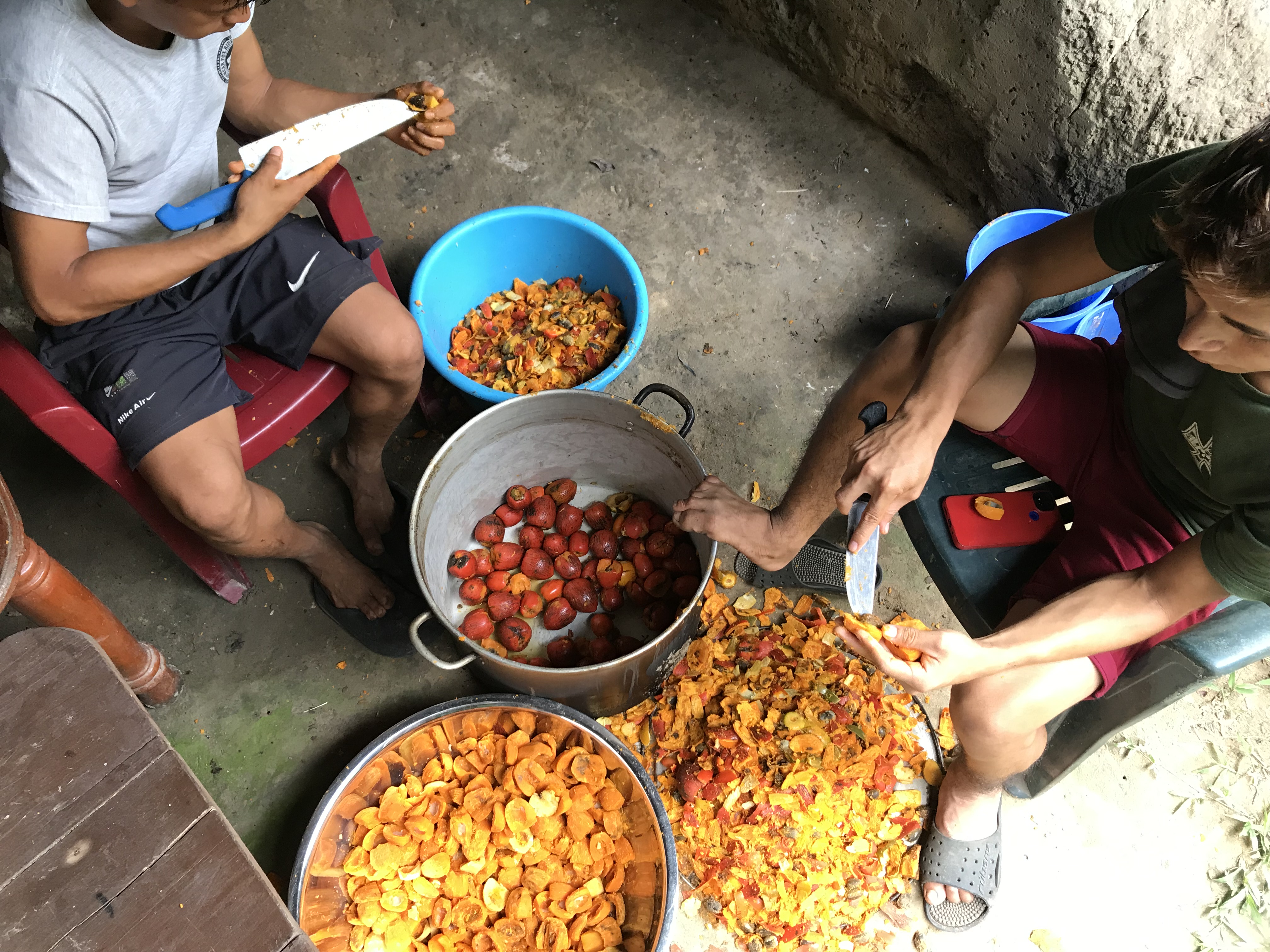
And none of them is to drink more coffee. As delicious as it is, coffee is not what keeps us going. If you use it too much, then coffee could even inhibit your energy potential. Coffee and also tea are known to be mineral depleters, and mineral depletion can influence your production of adenoside triphosphate, or ATP.
In my previous post we found out that ATP is the energy currency of our bodies. Created in our cells, this substance is needed for everything that we do. And there are some things that we can do to support our cells in performing all their tasks and generating lots of energy for us.
Healthy eating habits
To make ATP, our cells need food, and so we need to eat. Just eating loads might not get you the most beneficial effects; this really depends on what you eat and also when you eat.
The cells get their nutrients delivered to them via tiny blood vessels, called capillaries, that we find close to almost every cell in our body. The vessels let out a fluid, the interstitial fluid, that contains nutrients and oxygen. The cells are constantly bathed in this liquid and can take and also offload substances from and to this fluid.
Inside the cell, we also find a fluid-like environment, and the composition of this fluid, as well as temperature and PH, determine whether the cell is able to function properly or not. This intracellular fluid, however, is not independent of its external environment. What happens in the interstitial fluid, and also in our blood, has its effects on the environment within the cell.
It's all about balance
Just as for us, it is confusing if one moment it is sunny and warm and the next minute hail falls from the sky. For the cell, this is not funny either. It loves it if its environment, the interstitial fluid, is kept as constant as possible. This counts not only for temperature, but also for PH and the composition of the fluid. These last 2 are influenced by our diet.
And so if we skip meals or if we suddenly go mad on sugar, then big fluctuations can occur around our cells. One moment they are depleted of nutrients, the next they are swimming in sugar (glucose).
We're going to get to what a balanced meal is, but let me just highlight the importance of having regular meals. Unless you are working together with someone who really understands fasting or intermittent fasting, please just eat breakfast, lunch, and dinner. It is said that it is good to keep a minimum of 3 hours between meals so your stomach can sufficiently empty itself up before the new load comes in.
Another type of balance that our cells need is to have certain nutrients in sufficient amounts and to have some in a proper ratio compared to another.
There are 2 sets of each 2 minerals that need to be kept in proper balance with each other. They are: Sodium & Potassium, and Calcium & Magnesium.

When in balance, you can even transport a motorcycle accross the river in a tiny wooden boat.
1 Keeping the balance between Sodium & Potassium
Sodium and potassium are generally abundant in our food. Sodium is also abundant in our oceans and our most used food spice. It's table salt.
The production of our energy molecule, ATP, is performed by enzymes with the help of their friends, the cofactors, which are often minerals, vitamins, or derivatives of them.
The sodium pump
Now, enzymes, the mechanisms performing all metabolic tasks inside the cell, work best in an environment low in sodium and high in potassium. But the composition of our blood and the fluid surrounding our cells is low in potassium and higher in sodium, and this is how it should be. But what happens is that sodium constantly wants to enter our cells because the concentration is so low there.
Luckily, nature always has a solution, and so it equipped our body's cells with a 'sodium pump'. This is an enzyme that pumps sodium out of the cell.
Because the sodium pump needs to push the sodium from an area in which it is low into an area in which its concentration is much higher, this takes a lot of energy. It can generally take up to 30% of the total ATP that a cell has available.
Reducing salt
Our food naturally contains salt. Veggies, oats, and potatoes all contain sodium, which is enough for our body's needs. However, we keep adding salt to our food. First, it is added in the many processing methods; to preserv, to add flavour, and then we add more while cooking and sometimes even more on our plates. And besides adding salt, food processing methods often also deplete potassium. So when we have processed foods on our plate, and processed foods are any foods that are no longer as they occur in nature, they can be overloaded with salt and be very low on potassium.
This requires the cell to use more of its energy to get all of this sodium out. Less energy is then available to perform all of its other tasks. Also, enzymes function better when there is more potassium and less sodium. So when this balance is off, your enzymes will function at a slower rate. All metabolic processes will speed down.
This then means that with less ATP, less energy is produced. The more sodium needs to be pumped out of our cells, the more energy this process takes up. This then becomes a vicious cycle: high sodium results in less energy, there is less energy available to pump out sodium, sodium rises, meaning that even less energy is produced, etc.
So, what can you do?
2.1 Eat more foods in their unprocessed forms, as they naturally occur in this world.
2.2 Add less salt when cooking.
2.3 On days that you eat some very salty stuff, compensate with potassium-rich foods like potatoes, bananas, carrots, lentils, and red kidney beans, and avoid celery on that day because it is crazy high on sodium.
2.4 Also, if possible, avoid diuretic drugs and laxatives, alcohol, and coffee, and don't take too much sugar, as these can all interfere with this balance.
3 Keeping a healthy balance between Calcium & Magnesium
Both of these minerals perform crucial functions in our cells. Although only a tiny amount of calcium is kept in a cell, it has some pretty important things to do. In muscles, calcium helps with the processes of contraction and relaxation. Frequent cramps can be caused by a calcium deficiency.
Magnesium is of great help in detoxifying your body, and it is needed in the process of generating ATP.

A beautiful banana harvest at the plant nursery of Mi Amazonas. Bananas are rich in potassium and also have some Vitamin C, B6 and magnesium.
Social magnesium
Magnesium is friends with a huge amount of enzymes, and not just on social media; they actually meet. One of them is the sodium pump, which needs magnesium to be able to work and pump sodium out of the cell. As we just saw, a cell needs low sodium levels to be able to create a good amount of energy. Magnesium being the helper of so many enzymes, a deficiency does not only affect our energy production as enzymes are involved in numerous other processes in our body as well.
When we have too much calcium in our body, it will expel magnesium. Alcohol, coffee, diuretic drugs, and eating too much calcium all remove magnesium from the body after it has already been taken in. Too much sugar in our diet partly blocks magnesium from being absorbed in our intestines.
Not many foods are high in magnesium, and there is some talk that the soils in which our food grows are becoming low in magnesium and other substances as well. In the near future, I will post an article explaining more about that, but for now, let's continue with balancing our calcium and magnesium.
What to do?
3.1 Less dairy. Milk is not the only thing that contains calcium, and besides that, it is quite low in magnesium. It is a bit of an unbalanced drink. Dairy products are also prone to negatively affecting the environment of your large intestines, which has some implications for your overall health. We'll talk about that in a couple of weeks.
3.2 Eat more veggies. Vegetables, especially stem and leaf veggies, are actually a good source of calcium, and many of them have a bit more magnesium than milk. A good daily portion can provide all you need in terms of calcium. Good sources of magnesium are pulses, whole cereals, nuts, and some shellfish like winkles.
If you want to get your levels of nutrients optimal, then it is best to work with a professional (or become a professional). One mineral affects another, and the general numbers that the authorities have set and that you can find online do not always serve each and every individual well.
Here I am just giving you some general tips so you can make small adjustments in your diet, like taking less milk and a portion more veggies. And simple measures like these can definitely already ease your health.
4 Get off the sofa
A little recap: tiny blood vessels that we find close to almost every cell in our bodies release a fluid that brings nutrients to our cells. This fluid, of course, cannot exit the vessel in the early morning, move close to a cell, and then just hang around there for the rest of the day. The fluid will become depleted of nutrients and oxygen, and the cell will get hungry. This fluid needs to move, go back to the bloodstream, and become replenished with new nutrients.
Another reason why this needs to move is because our cells 'poop'. All their metabolic activities generate some waste that needs to be excreted from the cell, moved to the fluid, into the lymphatic system, and back to the blood, which will be cleansed and relieved from waste by the lungs, liver, kidneys, and skin. If the cells cannot get rid of their waste, they won't be able to function that well.
The lymphatic system is another network of vessels, and they drain a part of the interstitial fluid and help cleanse it. A way to stimulate the flow of the lymphatic system is to move our bodies. So a bit of healthy exercise each day indeed gives us more energy; our cells and enzymes function better and thus produce more energy because they are not burdened by a lot of waste.
Of course, if you have lead in your body, some yoga is not gonna eliminate that, right. Specific toxins, high toxic loads combined with organ underfunctioning, and those sorts of things need some professional help.

In the jungle, despite the relentless heat, people are certainly not lazy! Everything that can’t be produced in the forest, like mattrasses and sofas, needs to be carried by the ourselves (occasionally by horse or moto furgón) from the port to our homes. In the dry season, when the river is low, this journey can be one hour long.
5 & 6 Eat natural and regenerative foods; avoid pollution
Now, I guess the following comes as no surprise, but metabolic waste is not the only waste that we find in our bodies. Foods can naturally contain some substances that are less beneficial for our bodies, like potatoes, which contain a toxin called solanine.
When your body is in balance, it will have no to little difficulty dealing with these. However, our systems are often flooded with toxic substances like pesticides, chemical fertilizers, food additives, heavy metals, cigarette smoke, nasties in cosmetics, cleaning products, paints, plastics, etc, etc. It really is important to minimise the intake of highly processed foods and, when possible, opt for organic or better: food grown locally at a regenerative farm.

Keep in mind that, among the processed foods, there are different degrees of being processed. Supermarket nacho chips, made from corn, are enhanced with lots of salt and food additives, and many of the additives are not natural. In the picture above you can see Dander and René processing pijuayo into flour. Pijuayo is a corn like potato. To make flour of it, we cook them, peel and grind them. The ground material gets baked with a tiny bit of vegetable oil, and then all is ground again. No chemicals were added but we still have a product that we can store for months so we don’t have to throw away a 50 kilo harvest of nutritious food.
7 Breathe...
When I started to study nutrition, I often felt amazed that I was still alive! Our body seems such a delicate thing, easily taken out of balance, and our modern lifestyle desires and does everything that is bad for us. But please don't panic! Breathe! Your cells need oxygen too to do all the amazing stuff that they do. And with sufficient oxygen, more ATP is produced.
Our human body is also quite resilient, and it can take quite a few moccachinos without fully collapsing. But that does not mean that your body is functioning at its best on a huge load of milk, chocolate, sugar, and coffee. Neither does it take away the possibility that, although you feel fine, there are no health challenges starting to grow somewhere in your body.
Coffee contains vitamin K and pure cacao has some well-documented benefits for our health as well. Nothing is purely bad or only good. It is about balance, and we just have to learn how to get there.
There are still some other things that influence the functioning of our cells. Trace minerals and your emotions, for example, also play a role, and we will cover their importance in the future. What I covered today were very important things, and for now, definitely enough to take in.
In my next post, we'll be exploring one of my favourite fruits before we dive into the digestive system. Eat your veggies and stay well. Until next time!
Sources:
Ross and Wilson, Anatomy and Physiology in Health and Illness
Diet and Nutrition, a Holistic Approach, Rudolph Ballantine
Some info about coffee: https://www.hollandandbarrett.ie/the-health-hub/sports-nutrition/sports-supplements/caffeine/does-caffeine-affect-the-absorption-of-vitamins-and-minerals/
And about milk:
Medical disclaimer
The content on this website is not intended as personal medical advice for you. It does not diagnose your specific health condition and does not provide a treatment plan specifically designed for you. No patient-healthcare practitioner relationship is established by visiting this website.
Seeds of Health can not be held accountable for any actions taken by any party after they visited this site and viewed its content.